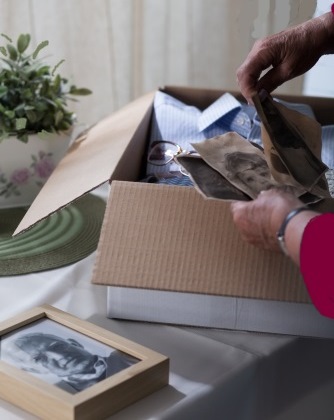- Home ›
- Getting started ›
- Family history interview: Part II, etiquette
Family history interview etiquette
Gaining trust

For distant relatives you may not know well, you may have to gain their trust before they'll open up.
Begin by sharing information about yourself and your genealogy research.
Plan to do a series of short interviews. As you become more familiar with each visit, the more your relative will open up. You could theme these interviews ie schooldays, family holidays, daily life at home, wartime experiences etc. Finding family stories in this way may be beneficial if you are planning to write-up your ancestral trail at a later date.
- Send your questions in advance. Explain that you want stories and memories, not dates, names and places (which older people may struggle with). Reassure them that they do not have to answer all the questions.
- Put your relative at ease. If you don't know the relative well, he or she may not easily open up to you. Reassure them that you'll let them read and approve your notes (once written up) before anyone else sees them. If they are clearly very uncomfortable with being taped or recorded, switch off and revert to note taking.
- Keep to the agreed time limit. If you said the interview would last one hour, don't exceed that time. Resist the urge to get every scrap of information at one sitting. Your relative is more likely to agree to a follow-up interview if they know you won't abuse their time.
- Show your appreciation. No matter how well you know the relative, it doesn't hurt to send a thank you note or leave a small gift after an interview. It's a courtesy that won't be forgotten.
Getting the interview underway
- Be sensitive. If you know some questions are sensitive, try explaining why you want to know rather than just asking straight out. Remember that many people will not want to speak ill of the dead, and that subjects you consider commonplace may be taboo to someone of a different generation.
- Show your interest. People love to talk about themselves to someone who seems genuinely interested in them. You will get the best from your interview if you demonstrate interest and curiosity by listening carefully, and encouraging them to personalise their experiences ie when they describe something that happened, ask them how they felt about what happened.
- Ignore inaccuracies. Recollections are often incorrect. Names may be confused, times and dates may mesh together, and older relatives may confuse one family member with another. Don't correct them, even if you have documentary evidence that contradicts what your relative is telling you. Let him or her tell you the way they remember it. Just make a note of the discrepancy, and move on.
- Listen! Ask a question and then wait for a response. Allow silences (you have to give your relative time to think). Don't interrupt.
Telephone interviewing
You'll get the best from your interview if you do it face to face. Unfortunately, this isn't always practical.
Next best for this type of research interviewing is the telephone. Follow these tips:
- Write or call in advance to set up a convenient time for the interview.
- Accept the costs of the call. If your relative is mindful of long-distance phone charges, he or she may not relax, and may answer questions without the elaboration that you are after.
- If possible, record the interview using a cheap phone recording device.
- Keep the interview to an hour, maximum. If the interview has gone well and you are still finding family history gems after an hour, schedule a follow-up call.
- Allow silences. This can be even more difficult over the phone, but you must give your relative time to think.
- Over the phone, use your voice to show you are listening. Respond appropriately to the story you are hearing.
Related pages
